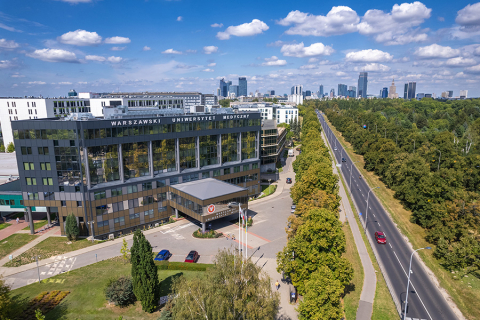What is harmful to the air in the capital city?
In metropolitan areas such as Warsaw, the main sources of pollution are:
- road transport, which is responsible for high concentrations of nitrogen dioxide (NO₂), and along transport corridors – also for high concentrations of harmful particulate matter,
- as well as individual heating of buildings with solid fuels (coal/wood), which in turn causes the air pollution with PM2.5 and PM10 particulate matter.
Global analyses, including those by the World Health Organization, have clearly indicated for years that air pollution is one of the key risk factors for the development of cardiovascular diseases, strokes, chronic obstructive pulmonary disease, asthma, and cancer.
Gradual improvement, but still a significant challenge
The data from municipal devices show that air quality in Warsaw is steadily improving. Among other things, a Clean Transport Zone is being implemented in the capital. There is also a ban on coal burning, which came into force in October 2023. By the end of 2024, the number of coal-fired stoves in Warsaw had been reduced by as much as 90%. The use of coal is also being phased out throughout the Mazovia region. And the city is planning further measures to help reduce pollution.
- Air pollution remains a significant environmental challenge that continues to affect the quality of life of Warsaw residents. The implementation of the project entitled “Evidence-based Warsaw's Health 3.0: Expanding Health Surveillance and Air Quality Monitoring for Actionable Urban Health Insights” will provide the data needed to take further steps towards improving it, says Prof. Mariusz Panczyk from the Department of Education and Research in Health Sciences, the project manager of the launched project.
And he emphasizes that children and young people, the elderly, pregnant women, and people with chronic diseases are at the greatest risk of developing diseases resulting from inhaling polluted air. Communities with lower socioeconomic status and people living near busy transport routes are also more vulnerable.
What will the scientists analyze?
- As part of the project, we will analyze the data from sensors and municipal resources as well as develop predictive models that take into account weather conditions and environmental variables - explains Prof. Mariusz Panczyk. -We will then work on standardizing the methodology for reporting air quality in Warsaw.
An important element of the project is the integration of new data with the resident health monitoring system. This will allow for the expansion of the dashboard developed by scientists, which indicates the health needs of residents, and the inclusion of additional preventive services.
All these indicators, taken together, are crucial for local government when making decisions about prevention programs and investments in health care financed by the city.
The interactive health dashboard and the system for monitoring the health of Warsaw residents are the results of earlier cooperation between the Medical University of Warsaw and the City of Warsaw in the Partnership for Healthy Cities.
The project for positive changes
-Constant, integrated health monitoring of the city, based on standardized data, as well as open access to key indicators, are just some of the long-term effects of our activities - emphasizes our expert.
The hard data obtained thanks to the cooperation between scientists and the capital city will provide a solid basis for the city authorities to make changes in urban policy, including transport and spatial planning. These changes will gradually reduce the population's exposure and decrease the number of deaths and illnesses related to air pollution.
Further cooperation within the Partnership for Healthy Cities network is an opportunity to accelerate the implementation of effective interventions that will improve the health of the inhabitants of these cities.
Who will implement the project?
The Medical University of Warsaw (leader: Department of Education and Research in Health Sciences; partners at WUM: Department of Public Health, Department of Prevention of Environmental Hazards, Allergology and Immunology, and the Center for Medical Ethics and Law), the City of Warsaw (in particular the Office for Strategy and Analysis and the Office for Air Protection and Climate Policy), as well as experts from the Warsaw University of Life Sciences and the Warsaw University of Technology under the supervision of Prof. Artur Badyda.
The agreement under which the Medical University of Warsaw became Warsaw's scientific partner in the Partnership for Healthy Cities was signed in 2023.
